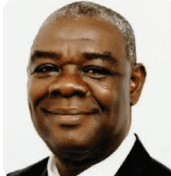…urges investors to take advantage
Deputy Director General (Finance) of the Securities and Exchange Commission(SEC), Paul Ababio, has assured investors in the capital, money and stock markets of a better year despite the impact of the pandemic on markets around the world, saying, there is renewed confidence in the system.
In an interview with the B&FT, Mr. Ababio said despite the pandemic and other factors shattering both these markets earlier, recent developments show confidence is back in the system, hence, investors should be inspired to invest in the markets.
“I think confidence is coming back gradually. We have seen the stock market pick up again. It went down right before COVID-19. There were concerns about the US raising interest rates which led to flight to quality. There was some turbulence around the elections. Now that those are over, we have seen interest in the market pick up again.
And overall, asset under management is actually up, year-on-year; and this year, as well, is on track to see a record growth. On the fixed income market side, we have seen transaction volumes exceed historical records. So overall, I think the confidence is coming back,” he said.
Databank Research predicts a strong recovery for the local bourse at the end of this year – given it was the best performing stock exchange in sub-Saharan Africa for the first quarter, largely anchored on the rebound in economic activity due to the roll-out of vaccines.
According to the research firm, as measured by the GSE Composite Index, the Ghanaian stock market ended the first quarter of 2021 as the best-performing market in Africa; closing the quarter at 2,213.29 points, representing 13.99 percent growth year-to-date (YTD) after breaking the 2,000-points key resistance level in January. This performance represents a US dollar-adjusted return of 14.62 percent YTD and marks a two-year high for the bourse.
Again, volumes traded on the local bourse in the first quarter of the year was 101.9 percentage points higher than was traded in same period of 2020. Furthermore, turnover increased by 99.6 percentage points within the period under comparison. Turnover for the first quarter of 2021 was GH¢153.4million compared with GH¢76.8million for the same period previous year.
Financial sector cleanup adding to the confidence
Commenting on the effect of the cleanup exercise undertaken by the regulator in November 2019 on asset management companies, which initially affected market confidence, as it led to massive panic withdrawals, the deputy managing director said SEC has increased its vigilance on the market to avoid any future occurrence of such an unfortunate event.
“The cleanup has been effective; the regulator is up and about, and we keep a good eye on the market as well. We are vigilant, we have an eye on the market; we are still conducting inspections both virtually and in-person; and we have digitized some of our operations so people are submitting returns virtually. So overall, we have a strong eye on the market,” he said.
Background
SEC in November 2019 withdrew the licences of 53 fund management companies following their failure to comply with the industry’s requirement and, in some cases, absconding with depositors’ funds. However, three of the companies have successfully fought back to have their licences restored, taking the new total to 50.
Among the breaches made by the companies are guaranteeing of returns contrary to the directive of the Commission; failure to honour client redemption requests; failure to honour payment terms agreed at Complaints Hearings; failure to place client funds with proper due diligence and the requisite standard of professional conduct, evidenced by over concentration of portfolios in high-risk institutions and related party transactions resulting in severe liquidity challenges.
Other offences include failure to segregate client funds from operational funds and in some cases using client funds to pay for operational activities; closure of offices without following due process; persistent regulatory breaches including failure to submit reports as required; corporate governance weakness with weak board oversight, poor accountability, and override of Investment guidelines; and failure to monitor and inject liquidity to comply with required levels.
According to the regulator, all efforts to get directors and management of the affected institutions to rectify the above lapses have yielded no positive results. Consequently, it adds, the liquidity challenges of these companies continue to deteriorate leading to twenty-one (21) of them closing their offices and absconding with clients’ funds without due process, whilst those currently operating have severe challenges in meeting clients’ requests for a return of their funds or investments.










